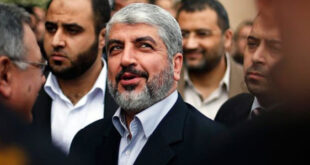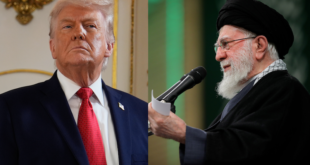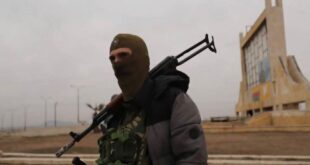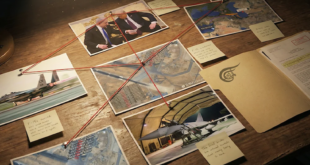LUXEMBOURG (Reuters) — Iran is probably three to eight years away from producing a nuclear bomb if it so chooses, the head of the UN’s nuclear watchdog warned on Thursday.
Underlining what he said was the growing risk of a major confrontation with the West and Iran, International Atomic Energy Agency (IAEA) head Mohammad Al Baradei appealed for the two sides to restart negotiations on a compromise as soon as possible.
“I tend, based on our analysis, to agree with people like John Negroponte and the new director of the CIA, who are saying that even if Iran wanted to go for a nuclear weapon, it would not be before the end of this decade or sometime in the middle of the next decade. In other words three to eight years from now,†Baradei told a news conference in Luxembourg.
“Iran needs to suspend its enrichment activities as a confidence-building measure but the international community should do its utmost to engage Iran in comprehensive dialogue,†Baradei told a conference on nuclear non-proliferation.
The IAEA said in a report on Wednesday that Iran was making substantial advances in uranium enrichment. Several months ago, Baradei predicted Iran was four to eight years away from the capability to produce an atom bomb.
The Islamic republic denies seeking nuclear weapons, saying its programme its purely civilian to generate electricity.
Iranian news agencies quoted President Mahmoud Ahmadinejad on Thursday as saying Iran’s nuclear programme was moving ahead despite Western pressure to halt it.
“With the backing of the Iranian nation we are not afraid of the enemies’… psychological warfare, and with God’s help we have come close to our ultimate goals,†he said.
Major powers last year offered Iran trade, technical and other incentives to suspend uranium enrichment. But negotiations proved fruitless and were called off before the UN Security Council imposed a first set of sanctions on Tehran.
EU foreign policy chief Javier Solana has been charged with assessing the scope for returning to negotiations. But already Washington is talking about a third round of sanctions after Iran ignored a fresh UN deadline last week to halt enrichment.
The IAEA report, like predecessors, said the agency had seen no evidence that Iran was trying to “weaponise†nuclear material or of undeclared nuclear facilities operating in the country.
But Baradei voiced concern that Tehran was moving towards confrontation with the international community by accelerating its nuclear programme, and said his top priority was to prevent Iran achieving industrial-scale production of enriched uranium.
Baradei sought to clarify controversial comments last week that the Western policy of demanding full suspension to prevent Iran obtaining nuclear knowledge had been “overtaken by events†because Iran now appeared to have enrichment expertise.
“It was simply to express concern that we are moving towards Iran building capacity and knowledge without the agency being able to clarify the nature or scope of that programme,†he said.
“If we continue in that direction we would end up with a major confrontation and we would reduce the possibility of a peaceful resolution of that issue.†“Al Baradei is not saying this to undermine the Security Council, the US or anyone else. He’s just asking these leaders to deal with reality,†said a diplomat close to the IAEA.
“He is pleading for direct dialogue, between the US and Iran in particular, to resolve the situation now … instead of posturing while the number of centrifuges [enrichment machines] goes up.â€
 Eurasia Press & News
Eurasia Press & News



